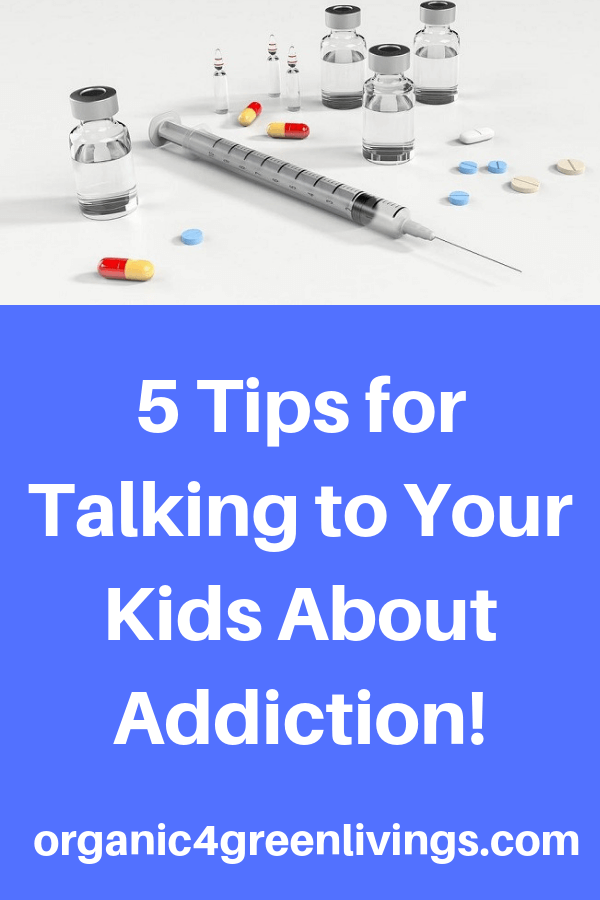Teens and Addiction: 5 Tips for Talking with Your Kids
It can be hectic to deal with teenagers at times. Once they are into drug and other substance abuse, it becomes even harder to talk and get their burdens out into the open. Research indicates that 75% of teenagers in high school have already gained exposure to substance abuse. 16% were positive for alcohol, nicotine, and other drug addiction and are from the age of 12.
The staggering statistics indicate the need for parents to speak to their children about drug and substance abuse. It might be difficult, but the earlier you start talking, the better. Here are 5 tips for speaking with teenage kids, for helping you out to keep them safe from any form of substance abuse.

1. Be open and listen
As parents, you might think that you know everything about drug and substance abuse. However, your teenage kid wants someone to open up to and listen when they speak. You might feel the urge to lecture, but hold it down and first listen.
Being an open-minded parent your talk will not only be productive but also allow you to see what is disturbing your teen. It might offer an opportunity to come up with a solution to their problem, like visiting centers like cleanrecoverycenters.com. It brings the two of you closer, preserves your relationship, and you get a chance to be there for your teen.
Listening is difficult for some parents, but allowing the child to speak and letting them know you are listening to them is essential. Ensure you do not interrupt them when speaking. Once they finish, repeat the story while confirming from them. Using the “I” statements prevents a judgment, which makes your teen comfortable. It comes with a note of persuasion, and the teen gets to decide what to do next independently.

2. Understand influencers
Children learn from others and especially from you as a parent or guardian. According to studies, addiction can be hereditary. Therefore, you should start molding them from a young age. Start by asking simple questions about how they spent their day in school. Ask what they liked about the day, what wasn’t suitable and take inventory of the answers they give.
Do this when they are younger preferable from ages 8 to 10. Research shows that if a delay occurs in their substance abuse at this age, then addiction rates reduce. With information at hand, you can discuss the positives and negatives of having a specific drug at the table as kids are more open to the talk.
3. Know their brains are still developing
The development of the human brain takes a while. Till the age of 25, your mind is still in its developmental stage. This explains why teenagers act the way they do. Some find it hard to express themselves or read your facial expressions. They may act impulsively and lack emotional control.
Identifying your child’s behavior may bring you to act differently. You should adapt your facial expressions. Above all, give your teen a chance to cool off before attempting to talk again. Frustrations and anger will only result in scaring or threatening the kid, and they pull further away from you.

4. Explore the reason behind substance use
Teenagers face many challenges on their paths to becoming young adults. According to studies, teenagers end up using drugs to find some relief from a stressful situation. Others see it as a distraction from events or circumstances unpleasant to them, for social acceptance and peer groups, manage their anxiety levels, among others. Identifying these factors offer you a chance to understand your teen at a deeper level.
Help, in this case, comes with understanding and offering your teen a way out of any risky situation they find themselves. Develop a code word that will allow you to rescue them without asking questions. It instills trust, and when ready, they will talk to you. Conduct drug tests at home and let your kids know that they will undergo the test one time or another.
5. Set your rules, values and clarify them
It is not enough to tell your teens to be smart or make me proud or do the right thing. These are just anecdotes that have different translations for different teenagers. Be smart about drug use; can read articles with your kids, such as taking alcohol but in moderation, do not take a drink at all or take but don’t let your parents find out among others.
Conclusion
As a parent, speak clearly while at the same time soliciting a possible input from your teens. Discuss the potential consequences of drug abuse in the family together. Let them set the rules, and they will keep them in mind when the situation arises. Besides, it keeps you in connection with your children at all times.
